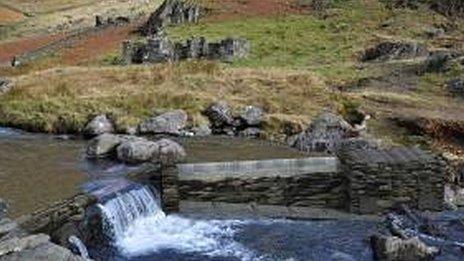Bethesda energy club shares hydro power in UK first
- Published
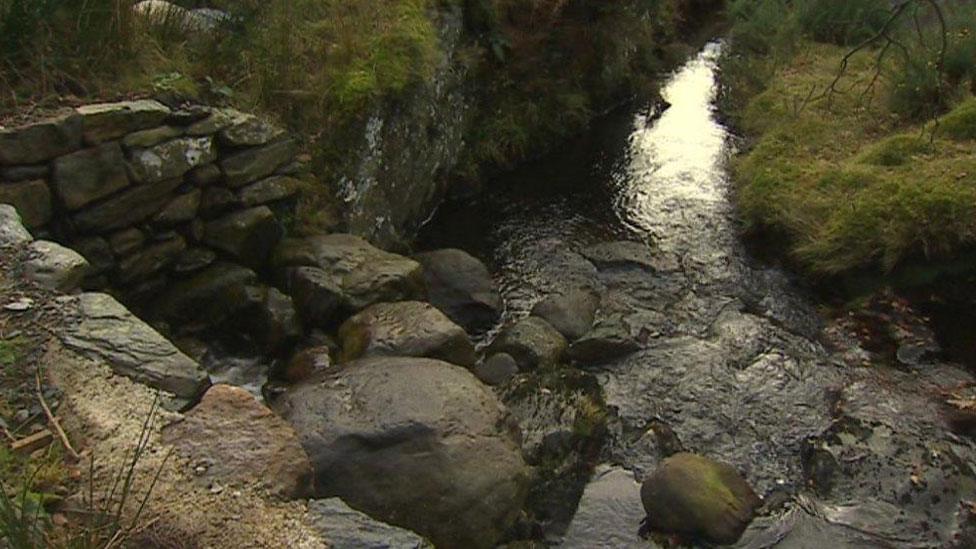
The River Berthen is the source of the energy
A "trail-blazing" trial in a Gwynedd village could change the way communities up and down the UK buy their electricity, it has been claimed.
By clubbing together, 100 households in Bethesda will be able to purchase the power generated by a local hydro scheme for half the price.
The aim is to help communities benefit more directly from renewable energy projects in their area.
Several organisations have been involved in pulling the pilot together.
It could be rolled out across the country if successful, focusing on areas of high fuel poverty.
So how does it work?
At the moment, community energy schemes as well as large conventional power stations feed the grid network which transmits electricity to our homes.
Consumers have no real connection with where or how that electricity is generated - it is just there when they flick on a switch.
Keith Jones, environmental adviser with the National Trust in Wales, said it can take the guesswork out of supply
The trial aims to help communities support green energy projects in their own area. By making sure the power is used locally and does not have to travel for miles, the community gets cheaper bills.
The electricity produced by the Bethesda hydro will be split evenly between club members using energy at any given time.
Each home will pay 7p/KWh for their share. That is about half the average price for electricity in the UK, but more than the hydro would usually receive for selling it.
It is conceptual - the villagers' homes are not physically plugged into the hydro. But through the use of smart meters they will be able to show the extent to which they are using power at times when the hydro is generating.
To maximise the benefits they will have to change their habits - like using the washing machine or dishwasher after it has been raining and the hydro is running at full pelt, for example.
Cathrin Alwen Llywelyn is one of the homeowners taking part in the Bethesda trial.
"I have three children, I'm thinking about the future," she said.
"We've only got finite resources and so we need to be more aware of the energy we're using.
"This is a wonderful opportunity both financially and in a green sense as well.
"It's going to be a huge challenge to change our habits around the house in order to save money on our bills. But this will help us make better choices and that's a good thing."
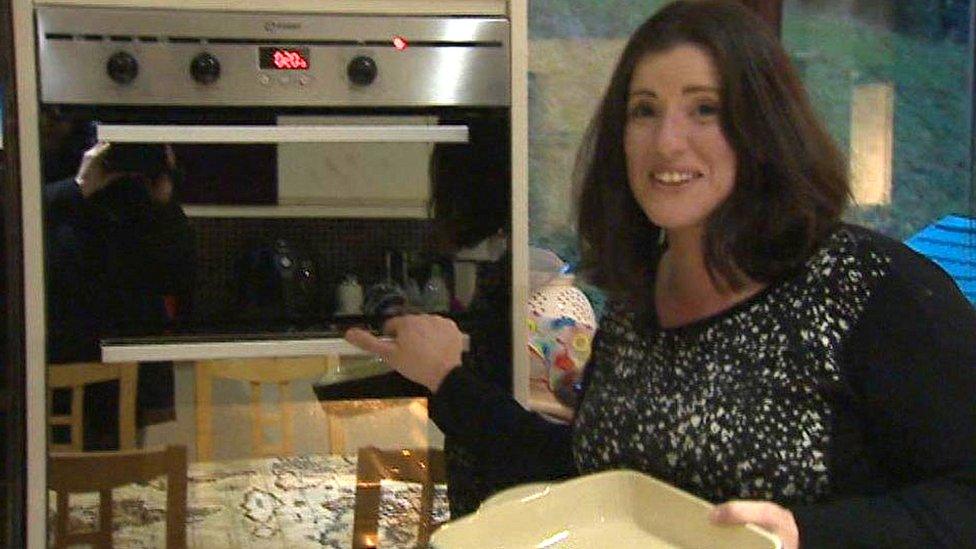
Cathrin Alwen Llywelyn is one of the residents who has joined the trial
Those behind the pilot believe each household will be able to save between 10-30% on their electricity bill.
Energy Local, a company set up to help communities benefit from locally-owned generation projects, has been coordinating the trial.
Its founder, Dr Mary Gillie, told BBC Wales that until now the people of Bethesda had not been able to take advantage of the "amazing renewable resources around them".
"The special thing about the project we're doing is allowing them to share the electricity generated locally within their community," she explained.
"So they can provide more money for their own hydro through their bills, but also get a lower bill at the same time. It's a win-win."
Initially the villagers are working with a National Trust hydro on the Berthen river but have been fundraising to build another community-owned plant nearby.
Keith Jones, the trust's environmental adviser in Wales, said he had been blown away by the amount of interest the scheme had received from across the UK.
"I'm being emailed or phoned by different people every week. People want to retain more of the benefit of energy generation locally," he said.
The electricity itself is being supplied by Co-operative Energy, which buys from the hydro and sells it to the households involved, as well as topping them up at times when the hydro is not running.

How significant is hydro electricity?
Hydro in Wales over the past 10 years has consistently contributed between 5-6% of UK hydro power generated
Hydro in the UK overall 10 years ago contributed about a quarter of renewable energy produced but with rises in solar and bio-energy, that share fell to 7.5% in 2015
But hydro in Wales still produced 351.6 Gwh in 2015 - the biggest amount on record

Mark Billsborough, head of renewable energy at the Co-op, said it had been "quite difficult to get this working" and that it "really is innovative".
"Within the community energy sector we've constantly got people talking to us about this particular scheme - they desperately want to allow their investors and communities to be able to buy their own energy directly from the site," he said.
"It's the closest things we've got yet to be able to do that. This is taking a big step into the future."
The big hope, according to energy experts, is schemes like this one will help customers take more ownership over their electricity use and become more energy conscious.
It is also hoped the idea will help with efforts to cut carbon emissions through giving the community energy sector - which includes schemes like small solar farms and wind turbines - a boost.
Dr Gillie described the trial as "a great step change, turning the energy system upside down".
"Bethesda is a really special place and they deserve to be put on the map for this," she added.
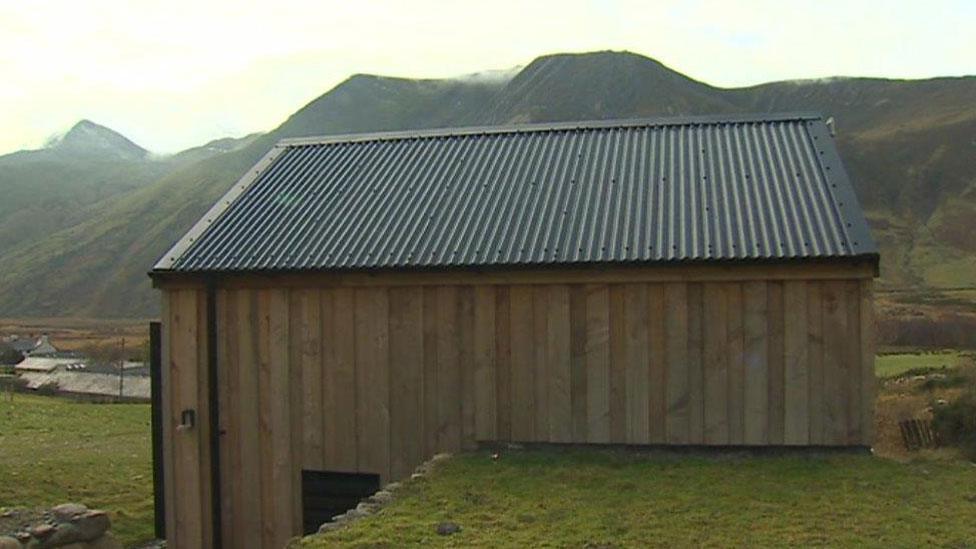
The 100kW hydro operation is a mile outside Bethesda
- Published12 December 2016
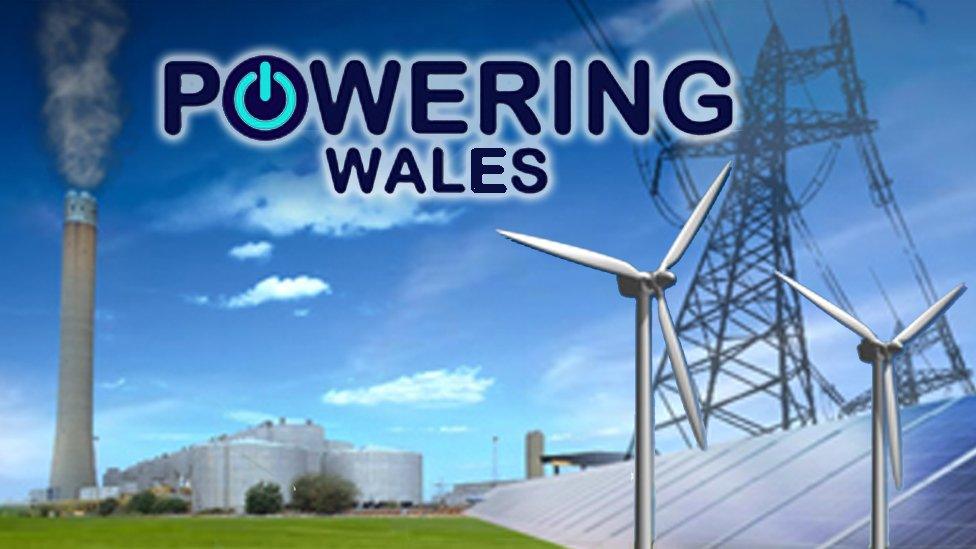
- Published16 August 2016
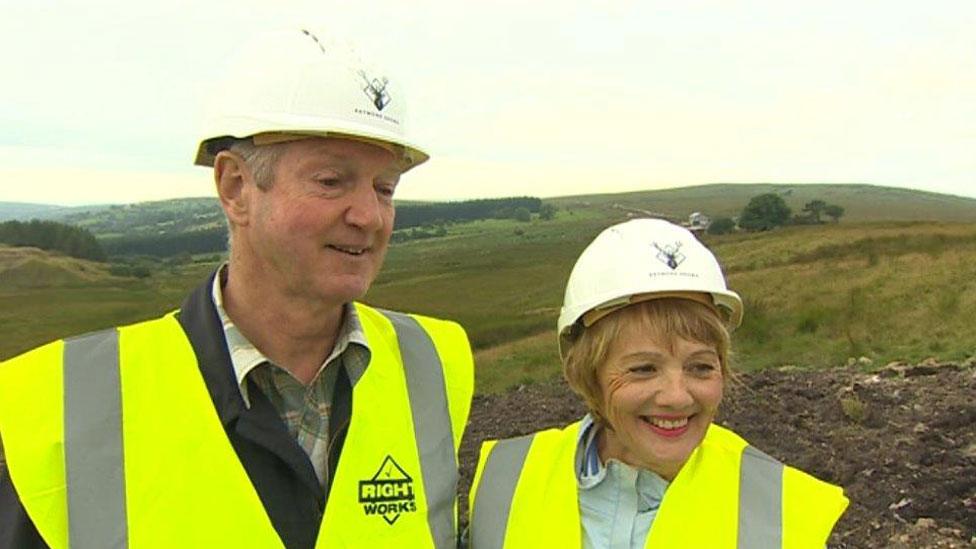
- Published18 August 2016

- Published26 July 2016
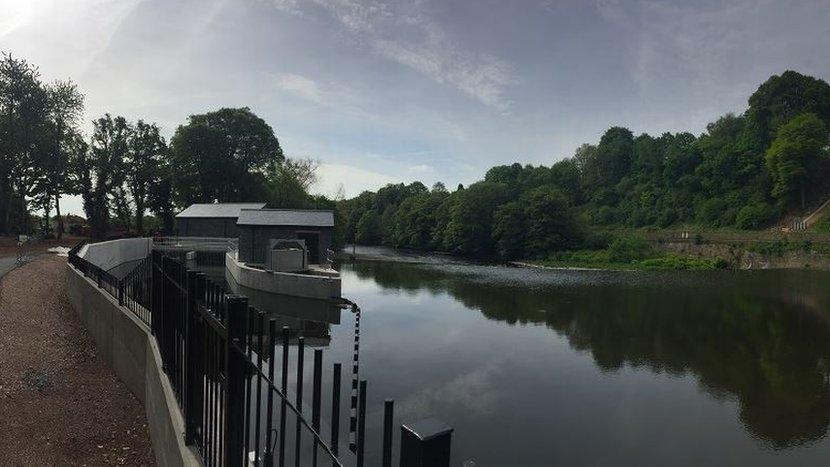
- Published29 July 2016
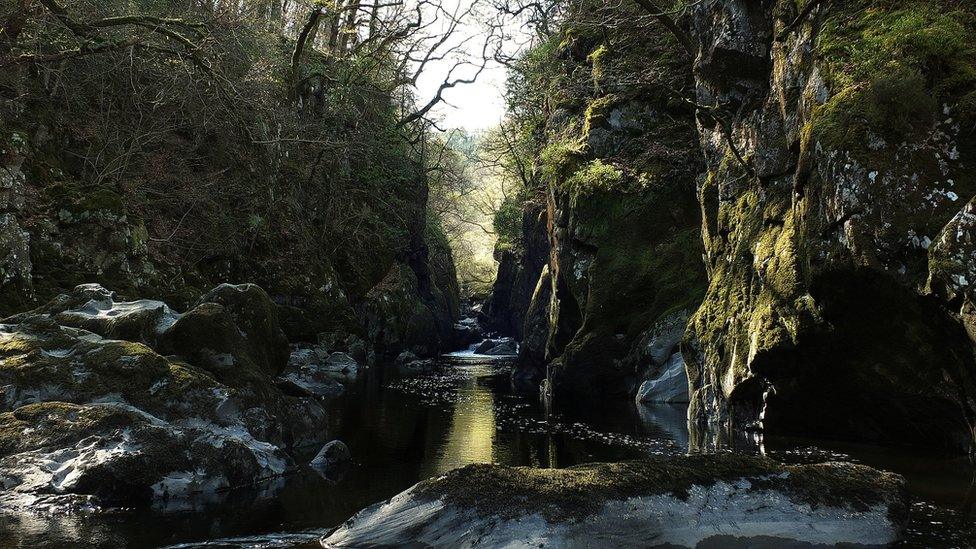
- Published4 April 2012
